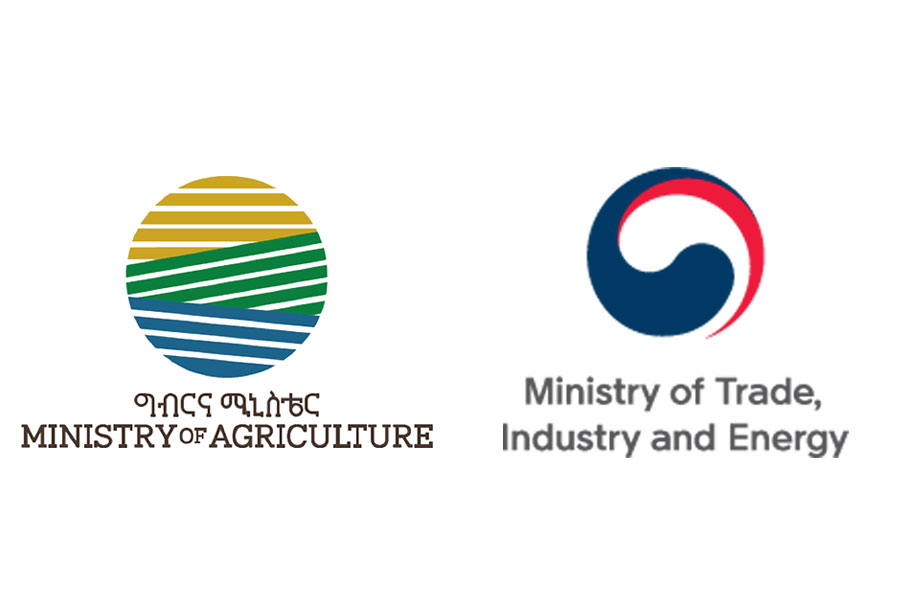
A recently ratified proclamation by Parliament, six years in the making, has led to regulation for contract farming, seeking to reduce past failings in production and supply chain risks. The new rule will delineate buyers’ and producers’ responsibilities and rights, marking a new era for the agriculture sector.
Girma Amentie (PhD), minister of Agriculture, has yet to send the draft regulation to the Council of Ministers for approval.
Before the proclamation, the sector was fraught with contractual disputes between investors and farmers. It was common for exporters to allege substandard production as grounds for contract breaches, while farmers cited a lack of necessary technical support and input for poor yield quality.
According to Dereje Abebe, investment director at the Ministry of Agriculture, such issues arise when farmers engage in side-selling, retain goods for personal consumption or when buyers with insufficient funds enter such agreements. The contract farming proclamation is seen as a step forward to streamline this process, addressing past failures and future-proofing the sector.
This new edict stipulates conditions for contract termination; if a farmer fails to deliver the agreed product or a buyer fails to furnish the required technical and input aid in the designated timeframe, termination may be justifiable.
The legislation sets out four modalities, with variations in the number of parties and production methods depending on the contract type. The centralized and out-grower modalities are deals between buyers and sellers, while multipartite and intermediary contract farming arrangements allow for third-party involvement. In the latter, the contractor enters into an agreement with another entity, such as a cooperative or union, acting on behalf of the producer.
Officials at the Ministry have conducted consultative meetings with stakeholders in the value chain for additional input during the legislative process. According to Sultan Mohammed, head of the contract farming desk at the Ministry, future meetings will include representatives from the regional and zonal levels.
Over a million smallholder farmers are engaged in contract farming arrangements. Yet, only 88 investors were active until last year due to the absence of a legal framework.
“The recent ratification of the bill, however, is set to double that number as foreign investors are now vying to enter,” Mohammed told Fortune.
Incentives for prospective investors following the regulation include duty-free privileges, easier access to finance, land provision, and increased access to inputs such as fertilizers and chemicals.
Incorporated in 2000, Tega & Tula Coffee Farm Agro-industry Plc has been sourcing coffee from nearly 700 smallholder farmers through contract farming arrangements for the past 12 years. The company illustrates the potential for sufficiently regulated contract farming.
The farm, a 400hct land between the villages of Tega and Tula in the Kaffa Zone, South West Regional State, primarily exports to Europe, the US and Dubai, with an average annual yield of 1,200qntl of coffee. Amare Teshome, the operation manager, said quality has been below the standard, impeding the estimated supply they were supposed to get annually.
“We usually end up rejecting half of the production,” he said.
Experts agree that contract farming offers market stability for producers and buyers and secures a market for the commodity. The contracts should be comprehensive and specify the volume of the commodity to be supplied by farmers over a specific period and the expected quality standards upon delivery.
Teshager Abebaw, an agronomist and post-harvest specialist at the Food & Agricultural Organization (FAO), affirmed that the regulatory framework would make both parties legally beholden and defines the consequences of contract breaches, thus reducing disputes.
This year, farmers in the Oromia Regional State were able to harvest over nine million quintals of crops on 296,000hct land, almost doubling their yield from two years ago. Engaging in contract arrangements for the production of exportable cereal crops such as soybean, sesame, mungbean, barely, maize, and wheat, smallholder farmers from the 13 zones in the regional state reported an increased income, production volume and market linkages, according to Tesfaye Latie, agriculture business director at the Oromia Agriculture Bureau.
He disclosed contract breaches were reported from over 42 buyers and 280,000 smallholder farmers engaged in the arrangments in the region.
A World Bank report estimates that income variation for contract farming over non-contract farming can reach up to 75pc. This increase derives from integrating small-scale farmers into modern agricultural value chains, along with providing inputs, technical assistance, and access to markets.
Despite these promising developments, the industry is not without its challenges.
Lack of credit, limited information about production methods, market risk, and poor market linkages were some of the hurdles faced by farmers like Habte Mesele, a father of five who lives in M’erab Armachicho Wereda, north-western Gonder, in the Amhara Regional State. He is one of the 10,000 smallholder farmers who entered into contracts with 24 buyers in the regional state.
Since entering into a contract farming agreement with Etalem Trading Plc two years ago, Habte attests to the financial sustainability that contract farming has provided. He earned 140,000 Br after harvesting 148qtls of soybean on 35hct land and 57qtls of sesame from 15hct.
“It’s helped me attain stability,” he told Fortune.
Experts affirm that contract farming offers market sustainability for producers and buyers and guarantees a secure market for the commodity. They believe contracts should be as comprehensive as possible to indicate the quantity of the commodity to be supplied by the farmer over a period of time and assess quality standards on delivery.
According to Teshager, contract farming, bound by a regulatory framework, would make both parties legally accountable. He observed that farmers defaulting on contracts comes from the temptation to sell to the market for higher prices.
“Explicitness in the contractural terms could help deal with unforeseen circumstances,” he said.
PUBLISHED ON
[ VOL
, NO
]

Fortune News | Aug 27,2022

Radar | Sep 04,2022

Radar | Aug 07,2021

Fortune News | May 13,2023

Radar | Nov 16,2019

Dec 22 , 2024 . By TIZITA SHEWAFERAW
Charged with transforming colossal state-owned enterprises into modern and competitiv...

Aug 18 , 2024 . By AKSAH ITALO
Although predictable Yonas Zerihun's job in the ride-hailing service is not immune to...

Jul 28 , 2024 . By TIZITA SHEWAFERAW
Unhabitual, perhaps too many, Samuel Gebreyohannes, 38, used to occasionally enjoy a couple of beers at breakfast. However, he recently swit...

Jul 13 , 2024 . By AKSAH ITALO
Investors who rely on tractors, trucks, and field vehicles for commuting, transporting commodities, and f...

Nov 1 , 2025
The National Bank of Ethiopia (NBE) issued a statement two weeks ago that appeared to...

Oct 25 , 2025
The regulatory machinery is on overdrive. In only two years, no fewer than 35 new pro...

Oct 18 , 2025
The political establishment, notably the ruling party and its top brass, has become p...

Oct 11 , 2025
Ladislas Farago, a roving Associated Press (AP) correspondent, arrived in Ethiopia in...